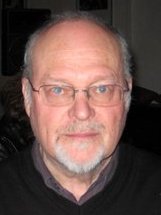Brian Street facts for kids
Brian Vincent Street (born October 24, 1943 – died June 21, 2017) was a very important professor who studied how people learn and use language. He taught at King's College London and the University of Pennsylvania. Professor Street spent most of his career researching literacy, which is about reading and writing. He looked at it from both a deep, theoretical side and a practical, everyday side. He is perhaps best known for his book, Literacy in Theory and Practice, published in 1984.
About Brian Street
Brian Street was born in Manchester in 1943. When he was young, his family moved to Devon in 1945.
He went to the Christian Brothers Grammar School in Plymouth. Later, he studied English and then Anthropology at Oxford University. In 1971, he started teaching at Mashhad University in Iran.
From 1974, he taught about human societies and cultures at the University of Sussex. He then became a professor at King's College London. For over 15 years, he guided students working on their doctorates. He also taught workshops on how to study cultures, how students write in college, and how language and reading/writing connect.
In 1988, he spent six months at the University of Pennsylvania. This led to him becoming a regular visiting professor there. He also held summer schools in Brazil until shortly before he passed away. He retired from his full-time job at King's College London in 2010.
In 2009, he was chosen as a vice-president of the Royal Anthropological Institute. He also led their Education Committee. Later in his career, he worked on projects in South Asia and Africa. These projects used cultural studies to train teachers in reading, writing, and math. This program was called LETTER (Learning Empowerment through Training in Ethnographic Research). He also worked with people in Brazil on similar topics.
His Ideas on Literacy
Brian Street became a leading thinker in what is called "New Literacy Studies." This idea says that reading and writing are not just simple skills. Instead, they are social practices. This means they are connected to how people live and how power works in society.
Professor Street disagreed with some other scholars. These scholars thought literacy was just a set of skills. They believed you could learn these skills on their own, no matter the social situation. Street called this the "autonomous view of literacy."
His own idea was the "ideological view." This view understands that reading and writing are always connected to their social setting. They are also linked to power and beliefs.
A key part of Street's ideas was the difference between "literacy events" and "literacy practices."
- Literacy events are specific times when people read or write. For example, reading a book or writing a text message.
- Literacy practices are the bigger patterns of how reading and writing are used in a community. These are the ways people think about and use reading and writing in their culture. Different groups might have different literacy practices.
Street developed these ideas from his research in a village in Iran called Cheshmeh. He saw that people used reading and writing in different ways. They used it for religious schools (maktab), for modern schooling, and for business (like trading fruit). The business literacy actually grew from the religious literacy, not from the modern school literacy. This showed that the social meaning and authority of literacy were more important than just the technical skills.
Later in his career, Street also studied "academic literacy" and "numeracy."
- Academic literacy is about how students write in college. Street argued that "good writing" changes depending on the subject. It's not just about grammar. It's about how different subjects think and share knowledge.
- Numeracy is about using math. Street believed that math skills are also social practices. They are not just about numbers. They are about how math is used in different places, like at home versus at school. He showed that some ways of doing math are valued more than others. This often depends on social groups and institutions.
Personal Life and Awards
Brian Street was married twice. He had three children (a son and two daughters) with his first wife, Joanna Lowry. He later married Maria Lucia Castanheira in 2017.
In 2008, he received the Distinguished Scholar Lifetime Achievement Award. This award recognized his important work in reading research.
Death
Brian Street passed away in Hove on June 21, 2017, at the age of 73. He died from cancer.
Images for kids



